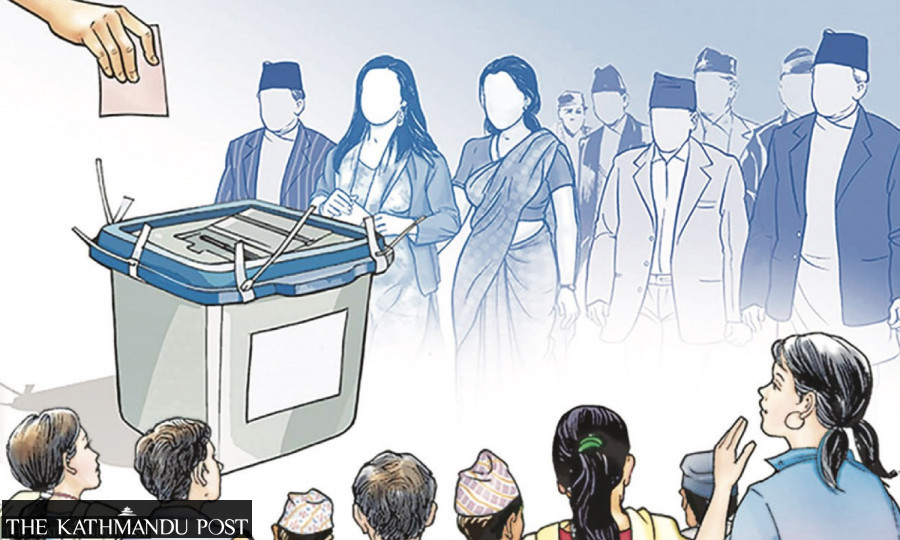Politics
European Union to skip monitoring upcoming polls
As many as 10,000 observers from 43 domestic and four international organisations will watch the elections.
Post Report
For the first time in years, the European Union will not be an observer in the upcoming Nepal elections on November 20.
The European Union and The Carter Centre had continuously been observing every election since the first Constituent Assembly polls in 2008. However, despite the call from the Election Commission twice, the two renowned organisations showed no interest in overseeing the House of Representatives and the provincial assembly elections scheduled for next month.
“We received applications from four international organisations for election observation but the European Union and The Carter Center didn’t show any interest this time,” Kamal Bhattarai, chief at the Observer Management Unit at the Election Commission, told the Post.
Asian Network for Free Elections, SAARC Human Rights Foundation, Civic Chamber of the Russian Federation, and Initiative for Dialogue and Democracy, Denmark are the four international organisations that have applied for permission. Unlike in the past, an organisation from the Russian Federation will be checking the fairness and neutrality of Nepal’s elections.
Officials at the commission said there are various reasons as to why the number of international observers, including the European Union and The Carter Center, were not interested in election observation this time. First, Nepal adopts periodic elections which are largely fair and peaceful, and second, the European countries are facing a fund crunch after the Covid-19 pandemic. Thirdly, the focus of entire Europe has shifted towards Ukraine at present.
“Quite a large number of domestic and international organisations were present for election observation in the two Constituent Assembly elections and the 2017 polls, which were the first after the promulgation of the Constitution of Nepal in 2015,” said Bhattarai. “It is natural that a lesser number of observers have shown their interest this time as the country’s electoral system has taken its normal course.”
Experts on political and electoral affairs largely agree with Bhattarai's observation.
“I agree that lack of funds and the focus of the western world on Ukraine is largely responsible for the European Union and The Charter Centre skipping the poll observation here,” Kapil Shrestha, chairperson of the National Election Observation Committee, told the Post. “However, the western world hasn’t liked Nepal’s double standards and duplicity on human rights issues. This could be one of the reasons for their absence.”
The commission is expecting the arrival of some 100 international human rights observers under the four organisations. The number of domestic observers, however, will be higher.
As many as 43 national organisations will be observing the November 20 polls. They will mobilise close to 10,000 observers across the country mainly on the voting day.
Even so, some of the organisations have already started keeping an eye on the candidates and their parties, tracking nominations for the first-past-the-post seats. In addition to checking the impartiality and fairness of the elections, they are also monitoring the election campaign costs which are ever increasing.
The observer organisations will prepare their reports once the elections are over.
“The election observation scrutinises the election process which helps in ensuring free and fair elections,” Shrestha said.




 18.12°C Kathmandu
18.12°C Kathmandu














